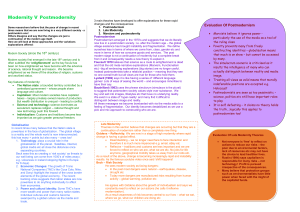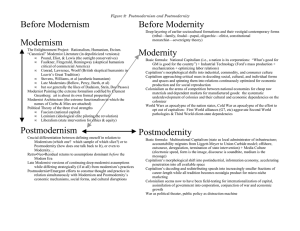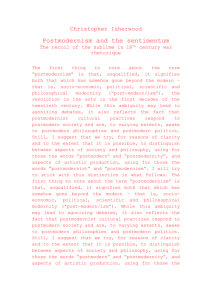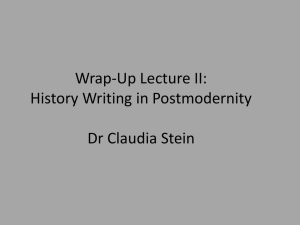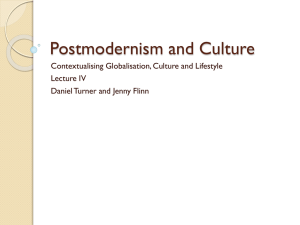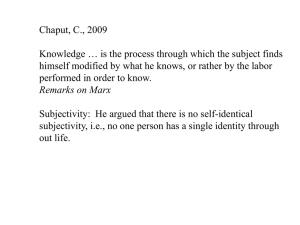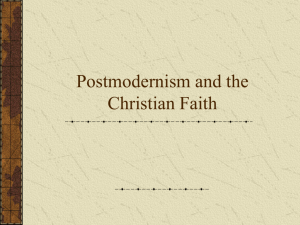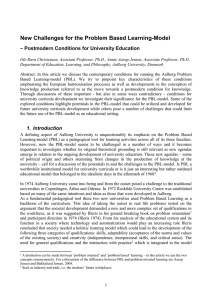Michel Foucault (d. 1984 at age 57) Key books Madness and Civilization
advertisement
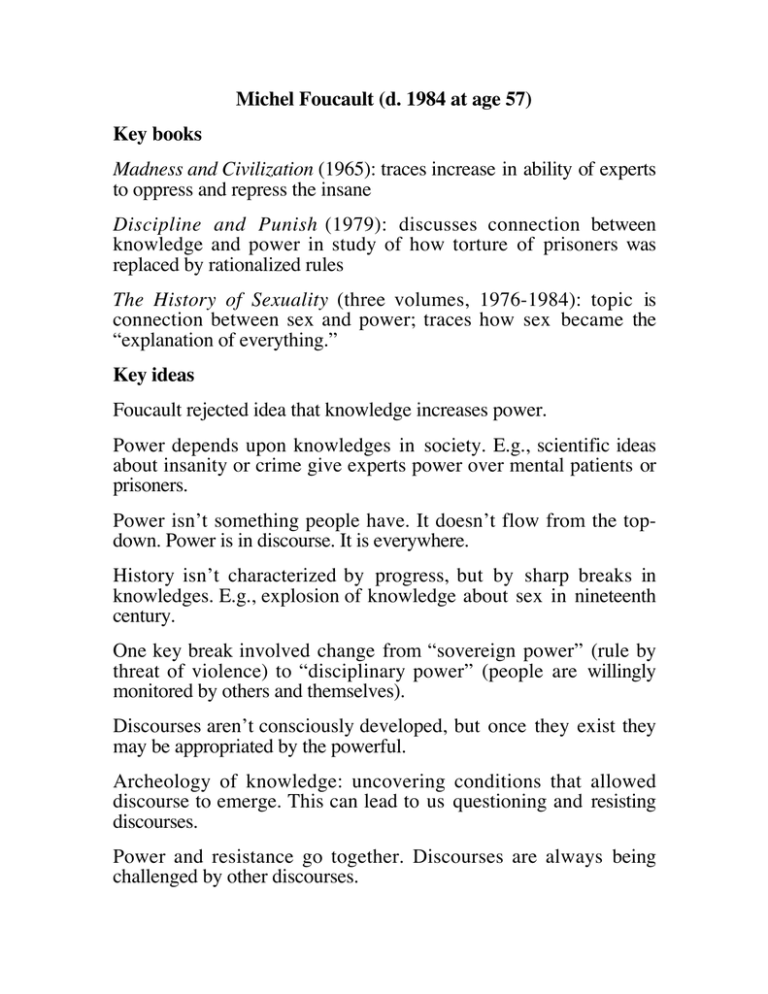
Michel Foucault (d. 1984 at age 57) Key books Madness and Civilization (1965): traces increase in ability of experts to oppress and repress the insane Discipline and Punish (1979): discusses connection between knowledge and power in study of how torture of prisoners was replaced by rationalized rules The History of Sexuality (three volumes, 1976-1984): topic is connection between sex and power; traces how sex became the “explanation of everything.” Key ideas Foucault rejected idea that knowledge increases power. Power depends upon knowledges in society. E.g., scientific ideas about insanity or crime give experts power over mental patients or prisoners. Power isn’t something people have. It doesn’t flow from the topdown. Power is in discourse. It is everywhere. History isn’t characterized by progress, but by sharp breaks in knowledges. E.g., explosion of knowledge about sex in nineteenth century. One key break involved change from “sovereign power” (rule by threat of violence) to “disciplinary power” (people are willingly monitored by others and themselves). Discourses aren’t consciously developed, but once they exist they may be appropriated by the powerful. Archeology of knowledge: uncovering conditions that allowed discourse to emerge. This can lead to us questioning and resisting discourses. Power and resistance go together. Discourses are always being challenged by other discourses. Discipline and Punish Common view: elimination of torture in favor of prison rules is form of humanization Foucault: torture was replaced by disciplinary power that impinges more on the prisoners Model is the Panopticon, a prison where every prisoner could be constantly monitored Monitoring by others leads to self-monitoring, i.e., comparing self to idea of “normal” created by experts The “criminal” and the “delinquent” are productions of the prison system Practices created in prison are used in other institutions, e.g., schools, factories, hospitals What is postmodernism? What is modernity? Social patterns connected to original concerns of sociology, such as industrialization, capitalism, urbanization and rationalization. So postmodernism posits some kind of break with these social patterns. Extreme postmodernists suggest a radical break—modern society has been replaced by postmodern society. Lyotard: Rejection of grand narratives, such as the Enlightenment project. Doesn’t seek a universal, rational foundation as modernity does. A more moderate position is that postmodernity is an extension of modernity, sometimes called “late capitalism” (massive extension of capitalism into previously uncommodified markets) Jameson: Postmodernity characterized by superficiality, waning of emotion, loss of historicity, reproductive technology (like computer and television). Some criticisms of postmodernism: 1. Doesn’t follow norms of science—which it rejects 2. Rejection of science allows wide ranging and broadly generalizing ideas, often without evidence 3. Difficult to understand, let alone use to make sense of social world 4. Criticize modernity, but doesn’t offer alternatives, leading to pessimism Summary of Excerpt from Jean-Francois Lyotard’s “The PostModern Condition: A Report on Knowledge” Postmodern is incredulity (disbelief) in meta-narratives, such as science, American capitalism and socialism. Instead, there are many different narratives and heterogeneous language games. We shouldn’t follow Habermas’ idea of consensus through dialogue because: 1. All speakers can’t come to agreement on which rules are valid for language games because these games are heterogeneous. 2. Consensus is only part of the discussion, not its end. Consensus is based on the metanarrative of emancipation. We must arrive at an idea of justice that is not linked to consensus. Recognizing the heterogeneous nature of language games is the first step toward this goal. The second step is the principle that any consensus is local and temporary.
